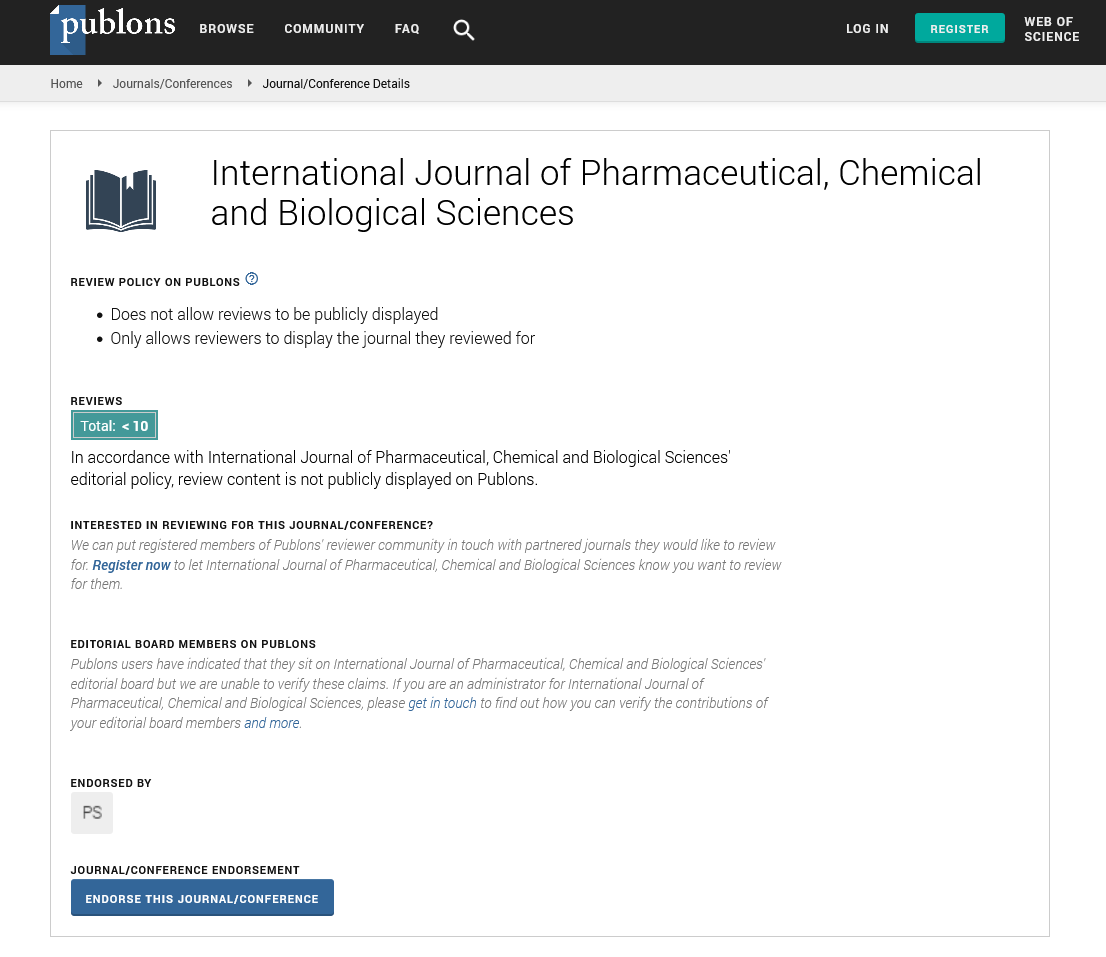Commentary - International Journal of Pharmaceutical, Chemical and Biological Sciences ( 2023) Volume 13, Issue 2
Metabolomics: Unveiling the Hidden World of Metabolites
Valarie Mickel*Valarie Mickel, Department of Chemistry, University of Chicago, USA,
Received: 31-May-2023, Manuscript No. ijpcbs-23-113774; Editor assigned: 02-Jun-2023, Pre QC No. ijpcbs-23-113774 (PQ); Reviewed: 16-Jun-2023, QC No. ijpcbs-23-113774; Revised: 21-Jun-2023, Manuscript No. ijpcbs-23-113774 (R); Published: 28-Jun-2023, DOI: 10.36648/2471-9668-13.2.6
Description
Metabolomics is a rapidly advancing field within the realm of systems biology that has gained significant attention in recent years. It is the study of small molecules known as metabolites, which are the intermediates and end-products of metabolic processes within cells. Metabolomics provides valuable insights into the complex biochemical interactions that occur within living organisms. In this article, we will explore the fundamental aspects of metabolomics and its applications in various fields. Metabolites are the molecules that drive and regulate the biochemical reactions necessary for life. They include amino acids, sugars, lipids, and countless other compounds, each with specific functions and roles. Metabolomics aims to comprehensively analyze and quantify these metabolites within a biological system, providing a snapshot of the metabolic state at a given moment. The process of metabolomics typically involves several key steps. Biological samples, such as blood, urine, tissue, or cells, are collected for analysis. Samples are processed to extract metabolites while preserving their chemical integrity. Various analytical techniques, including mass spectrometry and Nuclear Magnetic Resonance (NMR) spectroscopy, are employed to identify and quantify metabolites. Advanced computational methods are used to interpret the complex data generated during metabolite profiling. Metabolomics has the potential to identify unique metabolic signatures associated with various diseases. These signatures can serve as biomarkers for early diagnosis and monitoring of diseases like cancer, diabetes, and cardiovascular disorders. Metabolomics can aid in drug discovery and development by assessing the impact of pharmaceutical compounds on cellular metabolism. This helps identify potential drug candidates and understand their mechanisms of action. Metabolomics can provide insights into the impact of diet on an individual’s metabolism, allowing for personalized nutrition recommendations. It also contributes to the emerging field of personalized medicine, tailoring medical treatments based on an individual’s metabolic profile. Metabolomics is utilized in environmental science to assess the effects of pollutants and toxins on living organisms. It can help in understanding the impact of environmental factors on ecosystems and human health. One of the primary challenges is the vast diversity of metabolites, making it challenging to comprehensively identify and quantify all metabolites in a sample. Additionally, the dynamic nature of metabolism and the susceptibility of metabolites to degradation during sample handling require careful experimental design and standardization. The future of metabolomics holds great promise, with ongoing advancements in analytical techniques, data analysis methods, and data sharing initiatives. Integrating metabolomics with other omics disciplines, such as genomics and proteomics, will provide a more holistic understanding of biological systems. Metabolomics offers a unique window into the biochemical processes that govern life. It has farreaching applications in medicine, drug development, nutrition, and environmental science. As technology continues to advance and our understanding of metabolites deepens, metabolomics will play an increasingly pivotal role in unraveling the complexities of biology and improving human health and well-being. Metabolomics is the large-scale study of small molecules, commonly known as metabolites, within cells, biofluids, tissues, or organisms. These metabolites, which include sugars, fats, and amino acids, are the end products of cellular processes. Essentially, while genomics studies the role of genes and proteomics explores proteins, metabolomics centers on the biochemical processes taking place within the body at any given moment.
Acknowledgement
None.
Conflict Of Interest
None.

